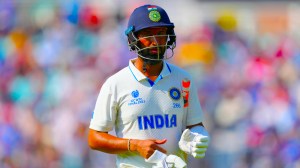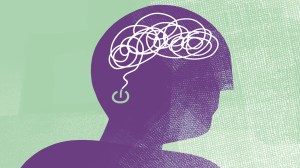Motto of Union should be ‘mediate, don’t litigate’: CJI
The event was attended by several dignitaries, including SC judges Justices Sanjay Kishan Kaul, Ahsanuddin Amanullah, Rajesh Bindal, P S Narasimha; Chief Justice of the Delhi HC Satish Chandra Sharma, judges of the Delhi HC; and the Attorney General of India R Venkataramani.
 The CJI also referred to a “life lesson” from the Apple TV show character Ted Lasso, advising mediators to “be curious, not judgmental”.
The CJI also referred to a “life lesson” from the Apple TV show character Ted Lasso, advising mediators to “be curious, not judgmental”.
Chief Justice of India D Y Chandrachud on Friday said that the motto of the of the Union government and its agencies should be “mediate, don’t litigate” while delivering the presidential address at the inauguration of the National Conference on Mediation organised by the Delhi High Court Mediation and Conciliation Centre. The topic of the two-day conference is ‘Mediation: At the dawn of a golden age’ organised under the aegis of the National Legal Services Authority and the Mediation and Conciliation Project Committee.
The event was attended by several dignitaries, including SC judges Justices Sanjay Kishan Kaul, Ahsanuddin Amanullah, Rajesh Bindal, P S Narasimha; Chief Justice of the Delhi HC Satish Chandra Sharma, judges of the Delhi HC, including Justices Manmohan and Sanjeev Sachdeva; and the Attorney General of India R Venkataramani.
Drawing parallels between the drafting of the Constitution and mediation, the CJI said that mediation is a process that involves resolving disagreements by facilitating an open dialogue, mutual understanding and bringing together stakeholders with differing viewpoints and helping them to find common ground. “In both cases the goal is to create a framework that is inclusive and reflective of the aspirations of the people,” the CJI said.
He further said “in today’s fraught times, mediation brings an important message for citizens which is are we losing the ability to talk to each other across the spectrum, are we losing our ability to engage in reasoned dialogue?” “Is it then not necessary to pick up something from mediation which is, importantly, being good listeners, understanding the other’s point of view and not only insisting that the dogma we espouse is the only dogma which is relevant to the times,” he added.
Calling it the oldest, most common and least formal of the dispute resolution mechanism, the CJI said that it puts the decision making process in the hands of the ordinary people and empowering them.
“Women especially those belonging to marginalised communities have often found formal legal proceedings to be alienating having been historically prevented from accessing law on an equal footing…,” the CJI said and that mediation would help in mitigating their alienation.
While speaking on the neutrality of the mediator, the CJI pointed to situations where a mediator who remains aloof during a negotiation in order to maintain their neutrality “is like a car stuck in neutral” which doesn’t go anywhere at all. He said that a “skilfull mediator will be conscious of their own biases” and this “self reflexiveness would enable the mediator to actively monitor how they are intervening in the process guided not by the principle of pretence of neutrality”.
He further emphasized on youth based mediation programmes and law school mediation programmes would train the next generation for a career in law where opportunities are bound to increase but it can also help them build necessary skills to resolve conflicts in a constructive and peaceful manner.
Apart from addressing the inaugural session, the CJI also launched the Samadhan mobile application and also released a book — ‘Mediation and its promise’. In conclusion he referred to a “life lesson” from the football coach on the show “Ted Lasso” advising mediators to “be curious and not judgmental”.
The AG made two announcements at the session saying that he proposes to set up the Attorney General’s national council of mediator’s watch to gather all the experiences of mediation across the country and it proposes to involve the advocate generals of all the states and senior members of the bar.
His second announcement pertained to a proposal for setting up the Attorney General national award for mediators’ achievements who will be identified at national levels. “I hope I will be in a position to push these two agendas…as much as possible within the scope of my short tenure,” the AG said.







